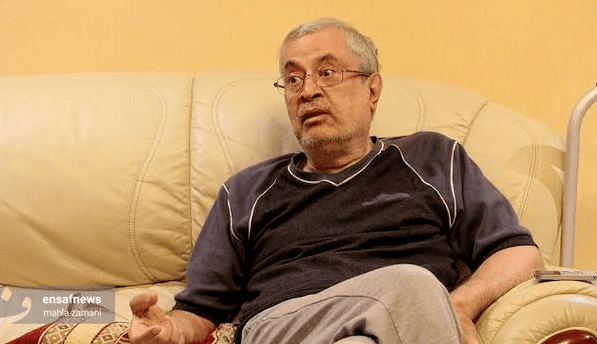A former senior intelligence official and a founder of the ministry of intelligence, says Iran was once a semi-democracy but it has turned into a non-democracy.
Saeed Hajjarian, known as the most senior theoretician of reforms in Iran has said in an interview with reformist daily Etemad that “the sooner the Iranian government resigns the better.” He added that “the presence of this government and the school of thought it represents is a major loss for the nation.”
He said: “I am not suggesting that [President Ebrahim] Raisi should be replaced by a reformist figure. What I am suggesting is that the same conservatives at the Majles and in the government should sit together and think of an efficient replacement.”
Hardliners loyal to Supreme Leader Ali Khamenei have pushed reformists out of the parliament (Majles) and the presidency since 2020, monopolizing all political power. However, as Iran’s economic situation has worsened partly because of US sanctions, reformists have become more vocal, demanding a chance to return to government positions.
“The Iranian opposition groups outside Iran are preoccupied with themselves. Instead of thinking of being an alternative to the current government, they are fighting with each other. On the other hand, they have been far from Iran for a long time and do not know the country’s problems, so their rhetoric sounds irrelevant,” he claimed.
While there have been disagreements among opposition activists, many in Iran still expect solutions from their compatriots who can freely engage in politics in Western countries.
In fact, some opposition figures, such as exiled Prince Reza Pahlavi have notable following in Iran, although there are no reliable polls to judge the exact measure of his popularity.q
As a key political figure who for the first time spoke about an alternative to the current political system, Hajjarian pointed out that the only choice is “absolute republicanism” with no adjective to characterize it.
“I believe we cannot vote for an absolute monarchy or a hereditary form of succession or an Islamic Emirate. All of these are against the international human rights charter,” he claimed, ignoring the fact that many democratic countries are constitutional monarchies. He further pointed out that a benevolent dictatorship is like a poison for Iranians.
…
…….
In another part of the interview, Hajjarian characterized the government of former President Mahmoud Ahmadinejad as “rich populism” and described the Raisi administration as a populist government that does not have money.
He said some of the outstanding problems in Iran such as the crisis of the pension fund and discrimination against women can create a political tremor and the government knows that it is incapable of coping with them.
Hajjarian said that borderlines between reformism and other political groups are blurred and most of those known as reformists are pseudo-reformists who are simply trying to find a way out of the current impasse.
Nevertheless, he argued that reformists are the only group with a plan, while critics say that they were in power for 16 years in the past 26 years and were not able to change the nature of the regime.
The former intelligence officer said Iran is in a state of suspension. If the situation worsens and the economic pressures become unbearable, Iran might show more flexibility toward the West.

